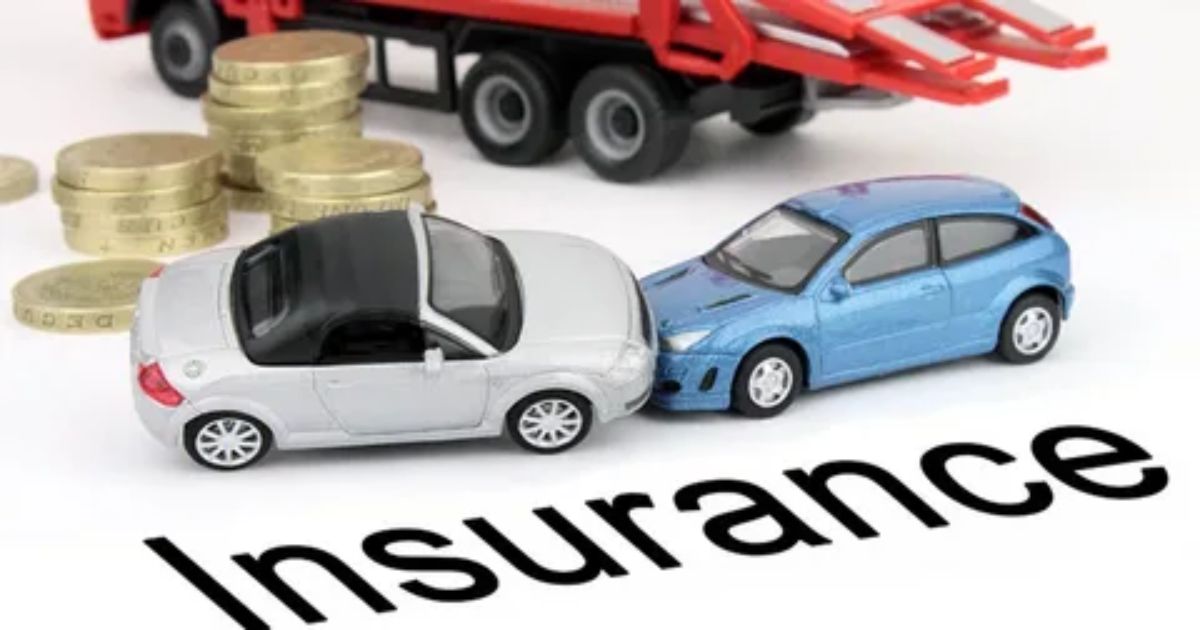Car insurance is a contract between a vehicle owner and an insurance company designed to offer financial protection against physical damage and bodily injury. Car insurance may also provide financial protection against theft and against damage to the vehicle. The primary purpose of car insurance is to mitigate the financial risks associated with owning and operating a vehicle.
Without car insurance drivers would have to pay out of pocket for any damage or injuries resulting from accidents. Car insurance policies typically include a variety of coverage options to cater to different needs and circumstances. The most common types of coverage include collision coverage, complete coverage, personal injury protection, and some more facilities.
Personal injury protection also known as PIP is a type of coverage that pays for medical expenses, and sometimes lost wages and other damages, regardless of who is at fault in the accident. Uninsured motorist coverage protects you if you are involved in an accident with a driver. who either do not have insurance or whose insurance is insufficient to cover the damages.
Why is Car Insurance Important?
Car insurance is essential for several reasons. First and foremost, it provides financial protection in case of an accident. Repairing or replacing a damaged vehicle can be expensive insurance and personal injury lawyer helps cover these costs. car insurance often includes liability coverage which pays for damages and injuries you may cause to others in an accident. Without insurance, you could be personally responsible for these costs which can be financially devastating.
Another critical aspect is legal compliance. In most places having at least a minimum level of car insurance is required by law. Driving without insurance can result in fines, license suspension, and even legal action. Insurance also provides peace of mind. Knowing you are covered in case of an accident or theft can reduce stress and allow you to drive with confidence.
Types of Car Insurance Coverage

Car insurance policies come with various coverage options each designed to protect against different risks. Understanding these types can help you choose the right policy for your needs.
Liability Coverage
Liability coverage is typically required by law. It covers the cost of damages and injuries you cause to others in an accident. This includes property damage and medical expenses for the other party. There are two main components bodily injury liability and property damage liability. Bodily injury liability covers medical expenses, lost wages, and legal fees if you are sued.
Collision Coverage
Collision coverage pays for repairs to your car if it is damaged in an accident, regardless of who is at fault. This type of coverage is essential if you have a newer or more expensive vehicle. Without collision coverage, you would have to pay out of pocket for repairs or replacements.
Comprehensive Coverage
Comprehensive coverage protects your vehicle against non-collision-related damage. This includes theft, vandalism, natural disasters, and other incidents like hitting an animal. Comprehensive coverage is often required if you have a loan or lease on your vehicle, as it ensures the car’s value is protected.
Factors Affecting Car Insurance Premiums
Several factors influence the cost of car insurance premiums. Understanding these can help you find ways to lower your insurance costs. Your driving record is one of the most significant factors. Drivers with a history of accidents or traffic violations are considered higher risk and typically pay higher premiums. The type of vehicle you drive also affects your premium. More expensive cars and vehicles with high repair costs usually result in higher insurance rates.
Where you live can impact your insurance costs. Areas with higher rates of accidents, thefts, or natural disasters generally have higher premiums. Urban areas tend to have more claims than rural areas leading to increased costs. Younger drivers especially teenagers tend to have higher insurance rates due to their lack of driving experience and higher risk of accidents. In many places, insurance companies use credit scores to help determine premiums.
How To Choose The Right Car Insurance

Selecting the right car insurance involves evaluating your needs and comparing policies from different providers. Here are some steps to help you make an informed decision.
Assess Your Needs
Consider the value of your vehicle, your driving habits, and your financial situation. Determine what coverage types and limits are necessary for your peace of mind and financial protection.
Check Reviews and Ratings
Research insurance companies’ reputation for customer service and claims handling. Online reviews and ratings from independent agencies can provide valuable insights into the reliability of different providers.
Look for Discounts
Many insurance companies offer discounts for various reasons such as having multiple policies, a clean driving record, or safety features in your car. Ask about available discounts to reduce your premium.
Claim
A claim is a request for payment from your insurance company for a covered loss. Filing a claim involves reporting the incident providing necessary documentation, and following the insurer’s process.
Benefits of Car Insurance
Car insurance offers several important benefits. First and foremost, it provides financial protection. Accidents can be very expensive, with costs for repairs, medical bills, and legal fees adding up quickly. Without insurance, you would have to pay these costs out of pocket.
Car insurance also offers peace of mind. Knowing that you are covered in case of an accident or other incident can reduce stress and allow you to focus on other aspects of your life. Additionally, many car insurance policies offer added benefits such as roadside assistance, rental car coverage, and towing services. These benefits can be very helpful in case of an emergency.
Choosing The Right Car Insurance
Selecting the right car insurance involves comparing different policies and providers to find the best coverage at an affordable price. Here are some steps to help you choose
- Assess Your Needs Consider your driving habits the value of your car, and your financial situation to determine the types and amounts of coverage you need.
- Shop Around Get quotes from multiple insurance companies to compare prices and coverage options. Make sure to review the details of each policy carefully.
- Check Reviews and Ratings Research the reputation of insurance companies by reading customer reviews and checking ratings from independent organizations.
- Understand The Policy Ensure you fully understand the terms, conditions, and exclusions of the policy before making a decision.
Common Car Insurance Myths

Many myths about car insurance can lead to confusion. One common myth is that red cars are more expensive to insure. In reality, the color of your car has no impact on your insurance rates. Another myth is that older cars are always cheaper to insure. While older cars may have lower market values, they can also be more expensive to repair which can increase insurance costs.
Many people also believe that their insurance will cover any damage to their car, no matter what. However, not all types of damage are covered by standard policies. For example, if you only have liability insurance, you will not be covered for damages to your own car. Comprehensive and collision coverage is needed to cover these types of damages.
How Car Insurance Works
When you purchase car insurance, you agree to pay a premium. This premium is usually paid monthly, quarterly, or annually. In return, the insurance company agrees to cover specific expenses outlined in your policy. If you get into an accident or experience another covered event you file a claim with your insurance company.
The insurance company will investigate the claim. They may ask for a police report, witness statements, and photos of the damage. Once they have all the necessary information, they will determine how much they will pay for the damages. You may have to pay a deductible, which is a set amount of money you agree to pay out of pocket before the insurance covers the rest. For example, if your deductible is $500 and the damage is $3,000, you will pay $500, and the insurance will pay $2,500.
Frequently Asked Questions
What is the difference between complete and collision coverage?
Complete coverage pays for damage to your car from non-collision incidents such as theft, fire, vandalism, and natural disasters. Collision coverage on the other hand, covers damage resulting from a collision with another vehicle regardless of who is at fault.
Can I drive someone else’s car if I have my own car insurance?
It depends on your policy. Some policies include coverage for driving other vehicles, while others do not. It’s important to check your specific policy or contact your insurance provider to understand the details.
How can I lower my car insurance premium?
You can lower your car insurance premium by maintaining a clean driving record, choosing a higher deductible bundling your car insurance with other policies, and taking advantage of discounts such as those for good students or safe drivers.
What should I do if my car is stolen?
If your car is stolen report the theft to the police immediately and obtain a copy of the police report. Then contact your insurance company to file a claim providing them with all necessary information and documentation.
Conclusion
Car insurance is more than just a legal requirement it is a crucial financial tool that provides security and peace of mind to vehicle owners. By understanding the various types of coverage available the factors that affect insurance rates and the process of filing claims you can make informed choices that best suit your needs. When you purchase car insurance, you agree to pay a premium. This premium is usually paid monthly or annually. In return the insurance company agrees to cover specific expenses outlined in your policy.
Investing time in selecting the right insurance policy not only ensures compliance with the law but also protects you from unexpected financial burdens in the event of an accident or other damage to your vehicle. Ultimately, having full car insurance allows you to drive with confidence knowing that you are well-protected. Car insurance offers several important benefits. First it provides financial protection. Accidents can be very expensive with costs for repairs, medical bills, and legal fees adding up quickly.
